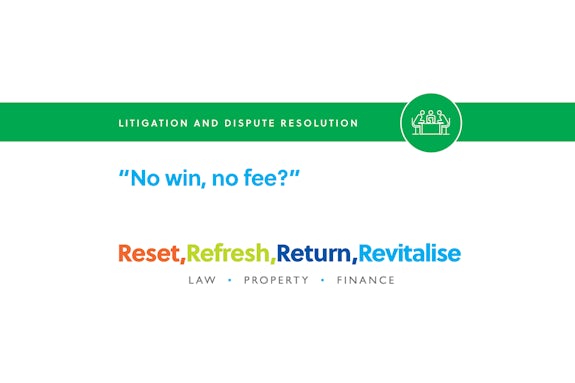By Gilson Gray
March 5, 2021

Our litigation team discuss the timely arrival of changes to litigation funding in Scotland amidst the COVID-19 pandemic.
The cost and risk of pursuing a claim can be a deterrent to many businesses and individuals raising court actions – particularly in the current economic climate. Further provisions of the Civil Litigation (Expenses and Group Proceedings) (Scotland) Act 2018 came into force on 27 April 2020. The 2018 Act implements the recommendations of the Taylor Review published in 2013, which was concerned with the way civil litigation is funded in Scotland.
The changes in the Scottish position relating to Success Fee Agreements better allow clients and solicitors to share the risks of litigation together. The primary objective of the reforms is to provide greater access to justice, along with greater predictability and transparency on costs. Such agreements therefore may be attractive to businesses with limited resources following the pandemic.
What is a Success Fee Agreement?
Broadly speaking, a Success Fee Agreement is an agreement between a solicitor and a client under which the client makes payment of a “success fee” to the solicitor if the case is successful (and does not make payment of a success fee, or makes a lower payment than the success fee, if the case is unsuccessful).
Until recently, Success Fee Agreements meant Speculative Fee Agreements (SFAs). Under these types of agreements, the fee payable on success is based on the work done by the solicitor rather than a percentage of the damages recovered. The “success fee” is an uplift in fees that is payable by the client if the action is successful.
The 2018 Act now also allows Damage Based Agreements (DBAs). Under a DBA, where a client is successful in a court action, the solicitor acting will receive a success fee (also known as a contingency fee) comprised of a percentage of the damages recovered. If the action is unsuccessful, the client will pay no fee or a reduced fee. Such agreements will be pre-agreed.
What was the previous position before the 2018 Act?
Prior the Act coming into force, DBAs were void and unenforceable in Scotland. The rationale supporting this position was due to concern that fees payable calculated solely on the damages give the solicitor acting an unhealthy financial interest in the outcome of the case. The counter argument was that if a client could not afford to litigate they faced the prospect of having 100% of nothing.
The allowance of DBAs by the 2018 Act is therefore a key change.
The new provisions set out a number of standard terms and conditions which must be implemented for a DBA to be enforceable. Most notably, a DBA must set out the basis of how a success fee is to be calculated and specify whether expenses awarded to the client in litigation are to be retained by the solicitor. There are also requirements covering modification or termination of the agreement. If any of the requirements are not adhered to then the DBA will be unenforceable.
The new legislation also imposes a cap on success fees. In commercial actions, success fees are capped at a maximum of 50% of the damages obtained. Lower caps are applicable for employment and personal injury cases. The differences in cap reflect the differences in the types of litigation.
The new rules surrounding DBAs offer greater flexibility to both commercial clients and solicitors. One important feature of the new legislation is that it allows hybrid DBAs in non-personal injury litigation, which might lead to solicitors agreeing reduced hourly charging rates in return for a success fee. Pre-agreed lower rates for legal services, with the possibility of a success fee, will allow solicitors to maintain cash flow, while enabling clients to share the associated cost risk.
Impact
By making litigation more affordable, the new regulations will likely improve access to justice. Calculating solicitors’ success fees on the basis of a capped percentage of damages recovered, DBAs could help bring greater transparency and predictability to funding litigation.
Amidst the Covid-19 crisis, many businesses are, and will be, impacted by the uncertainty and the financial strain caused by the current restrictions. Once businesses and non-commercial clients begin to return to business as usual, both DBAs and SFAs may be appealing options for businesses struggling with cash flow but wishing to pursue litigation.
Should you wish to discuss a potential litigation and its funding, please contact us and we will be happy to assist.
The information and opinions contained in this blog are for information only. They are not intended to constitute advice and should not be relied upon or considered as a replacement for advice. Before acting on any of the information contained in this blog, please seek specific advice from Gilson Gray.
